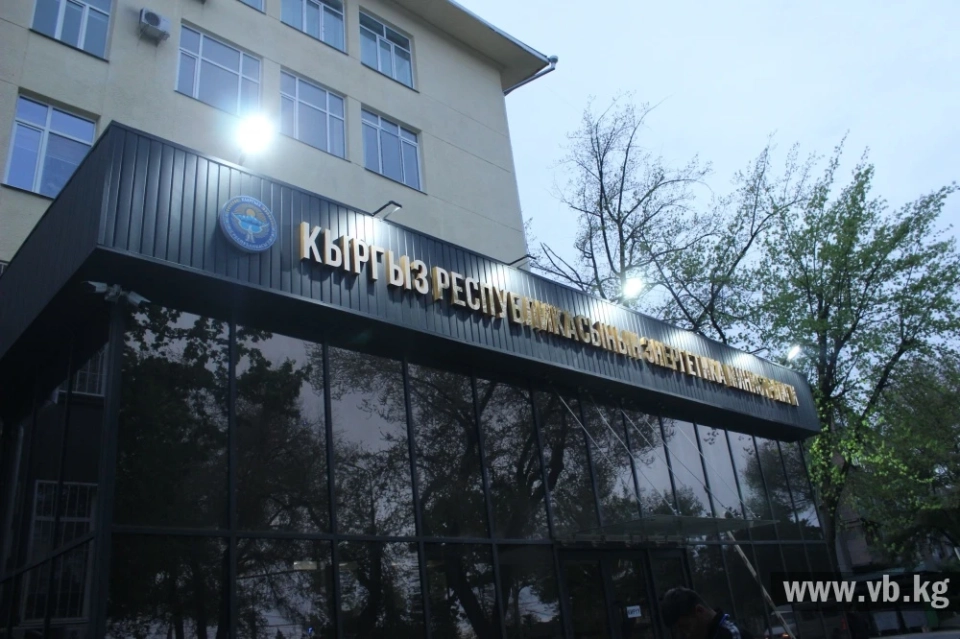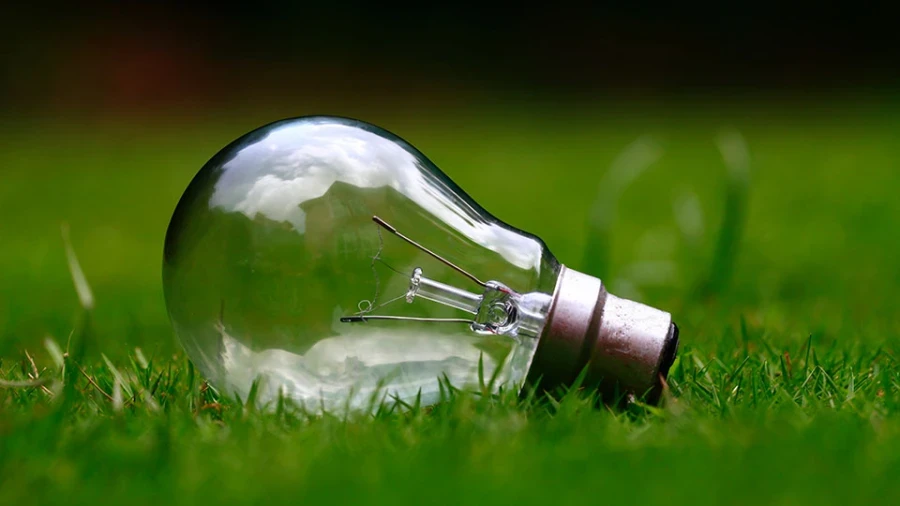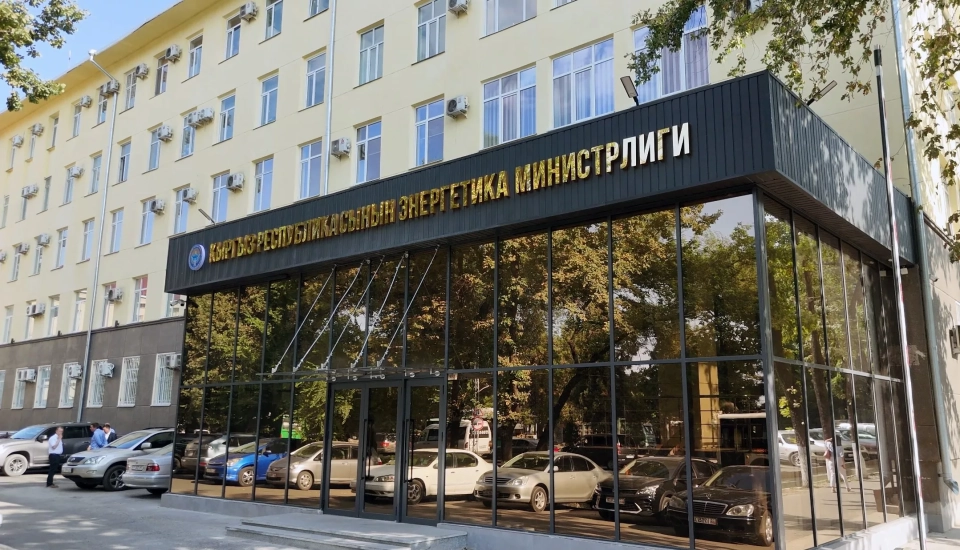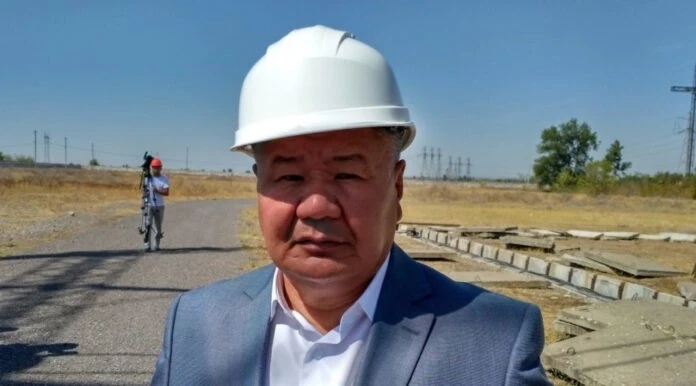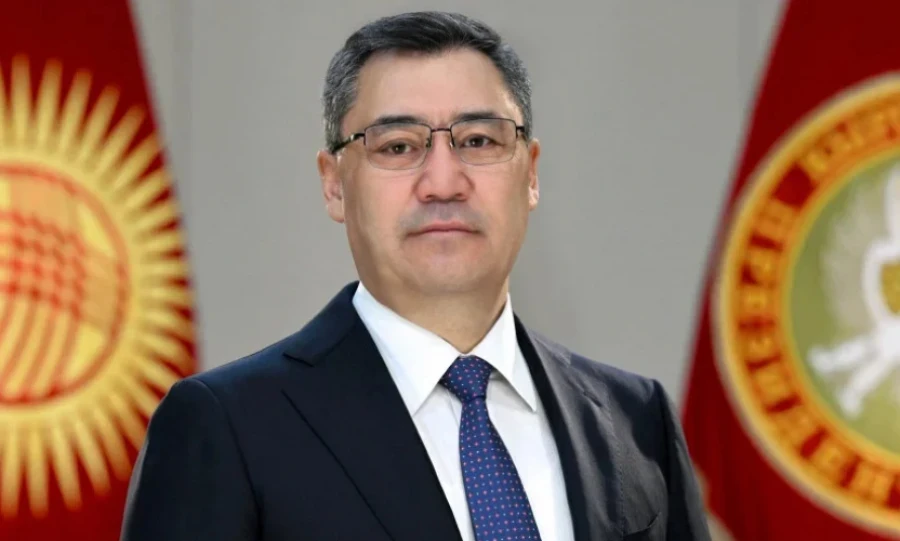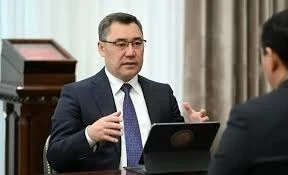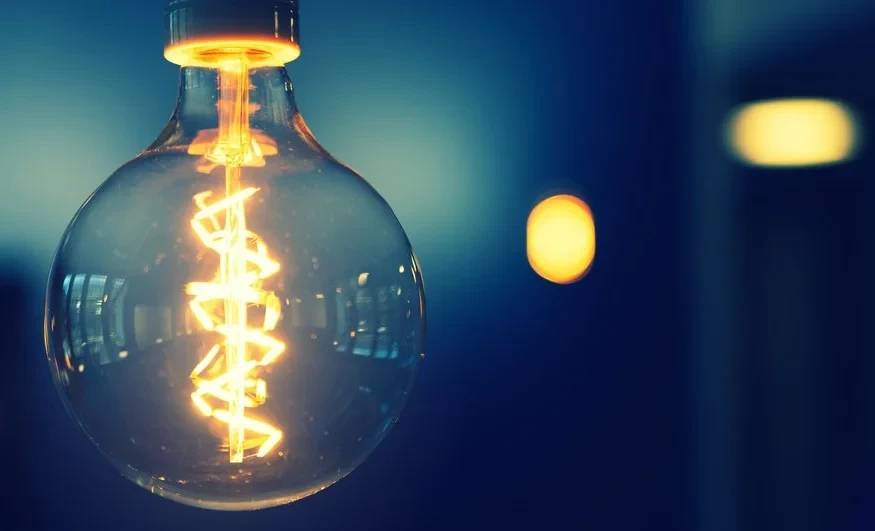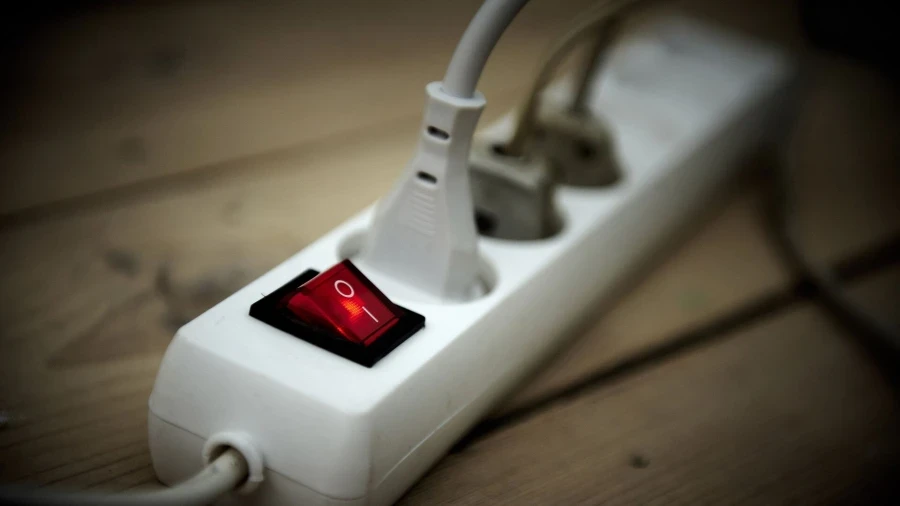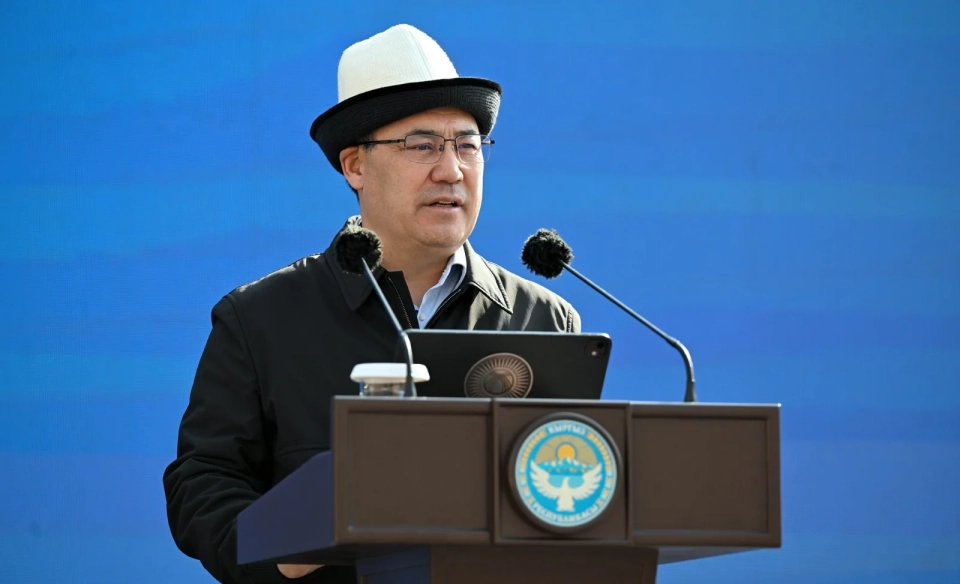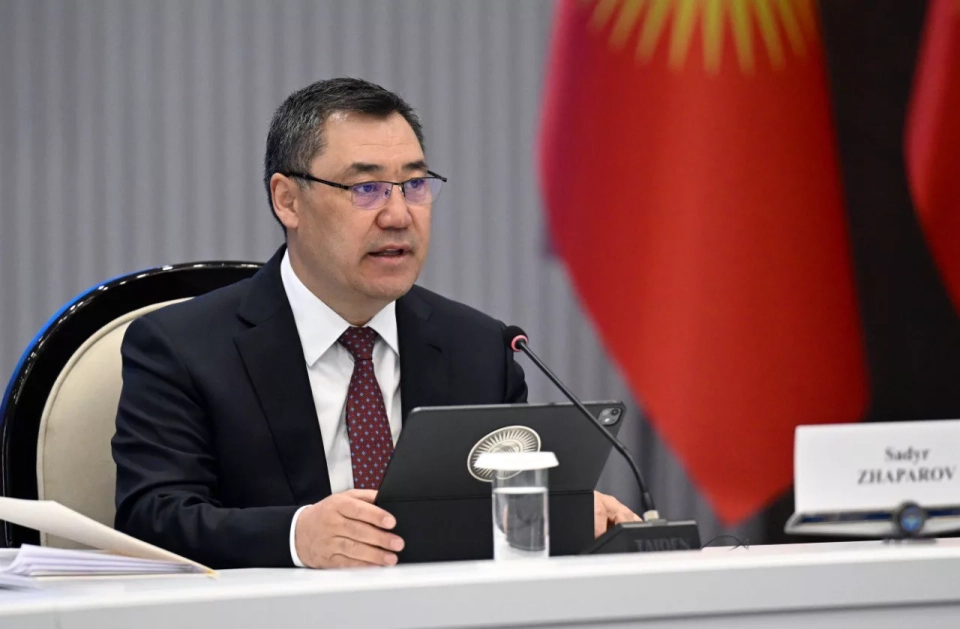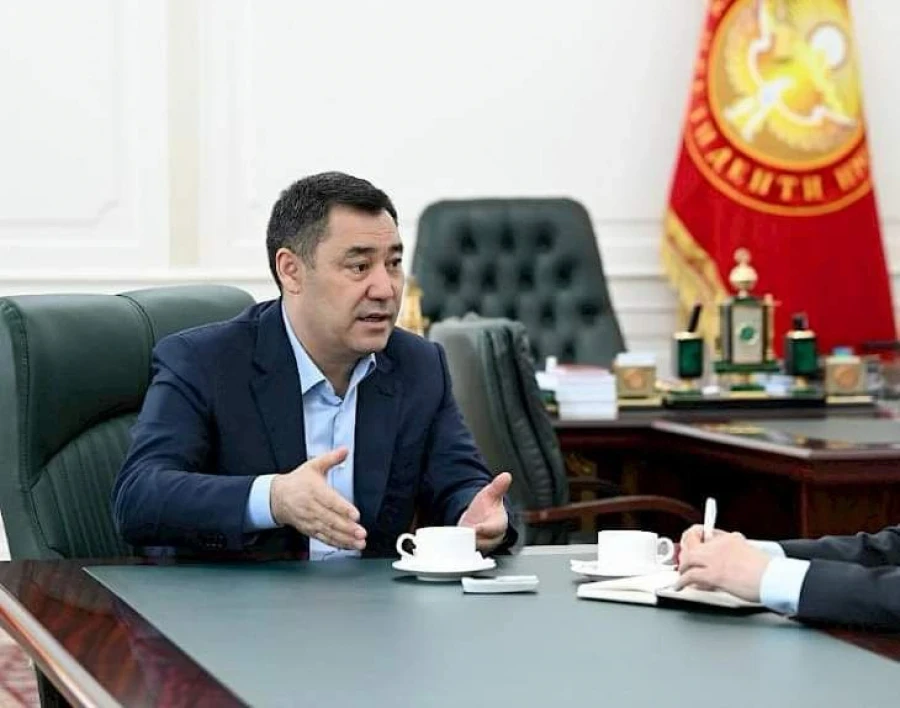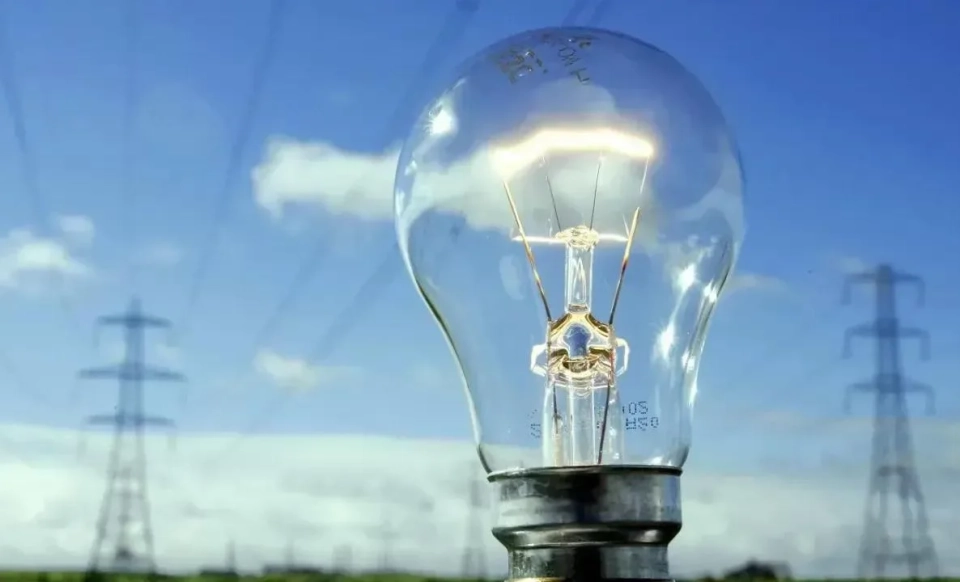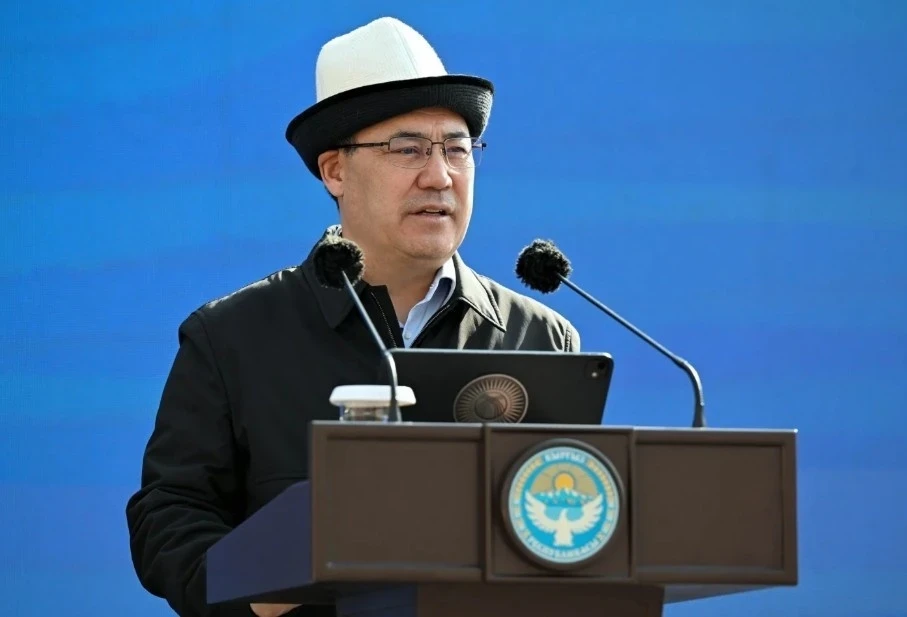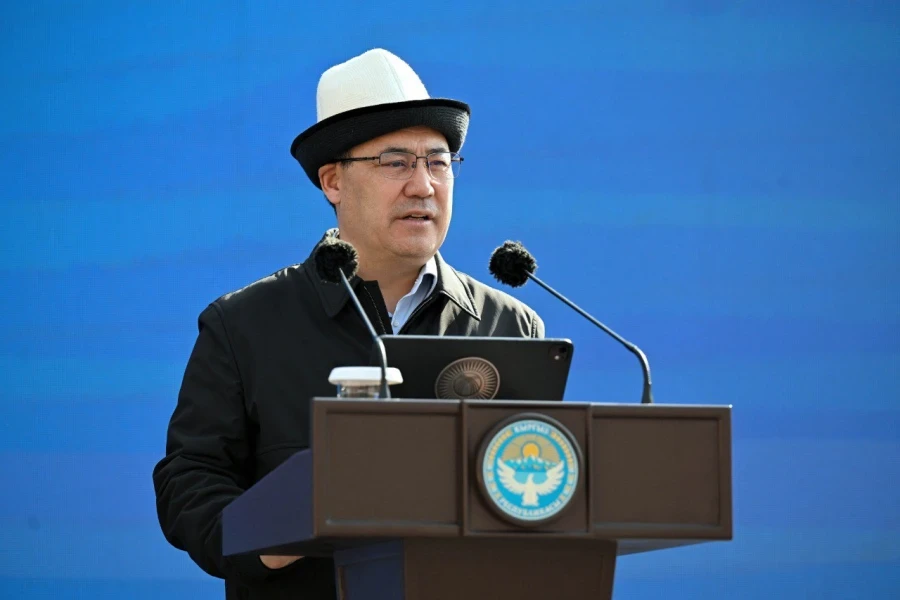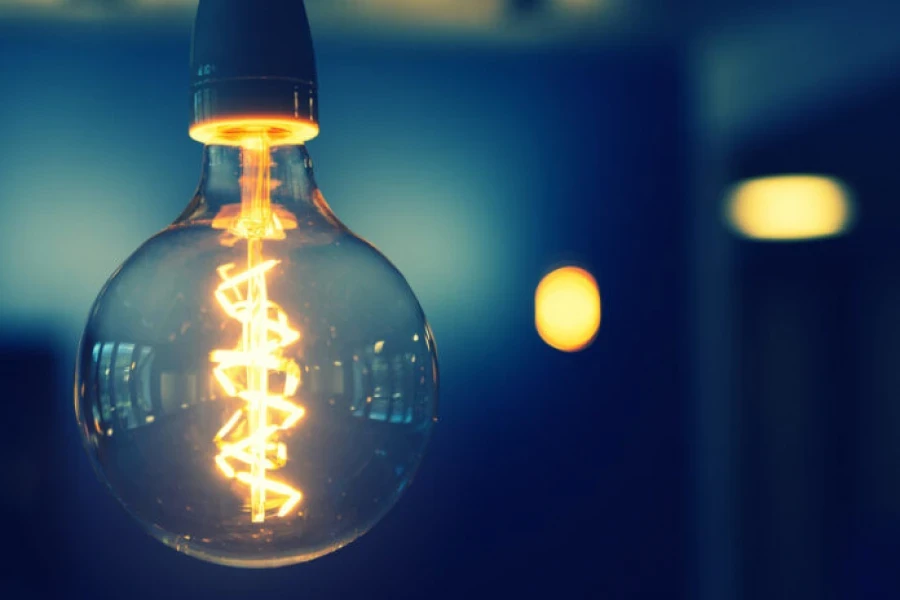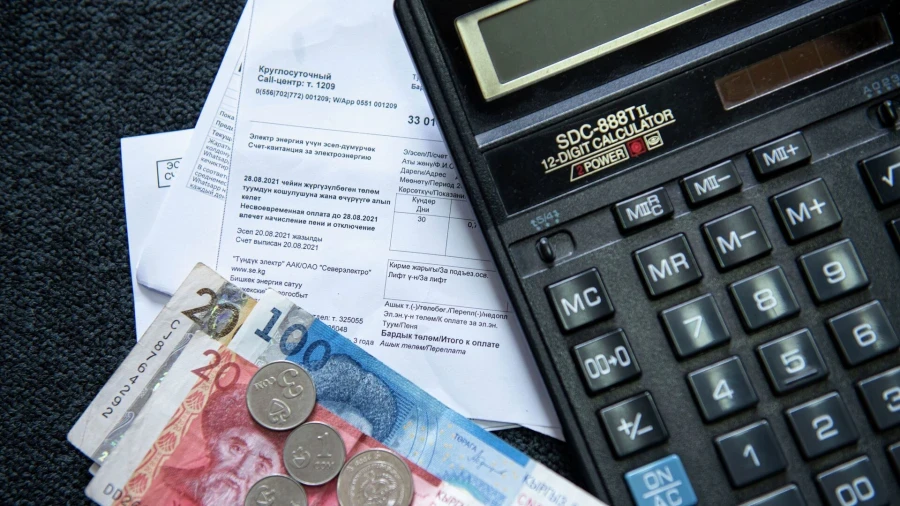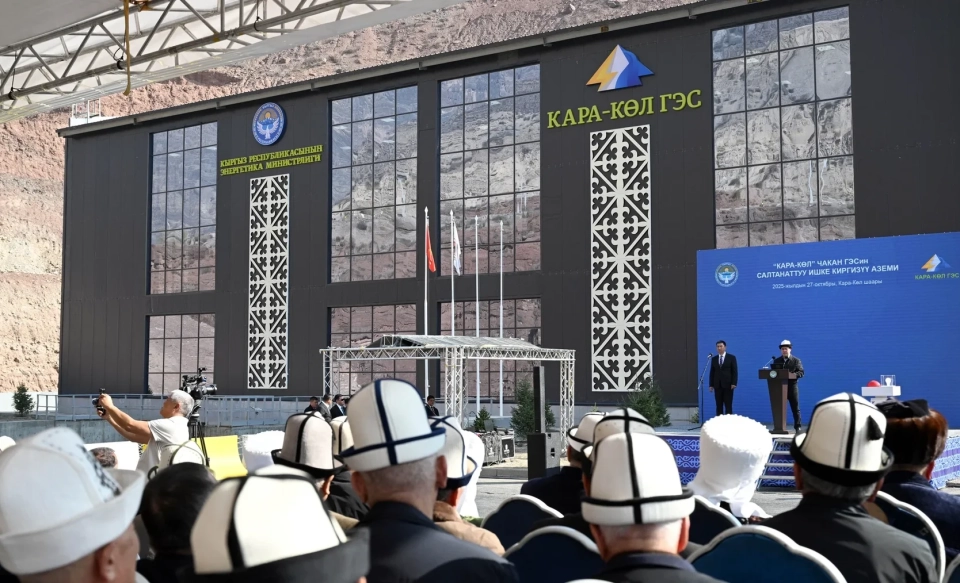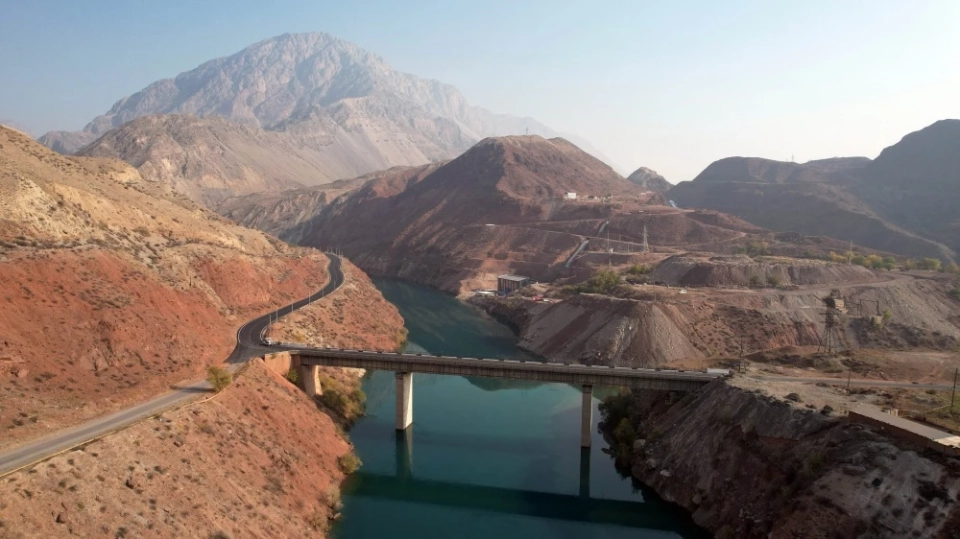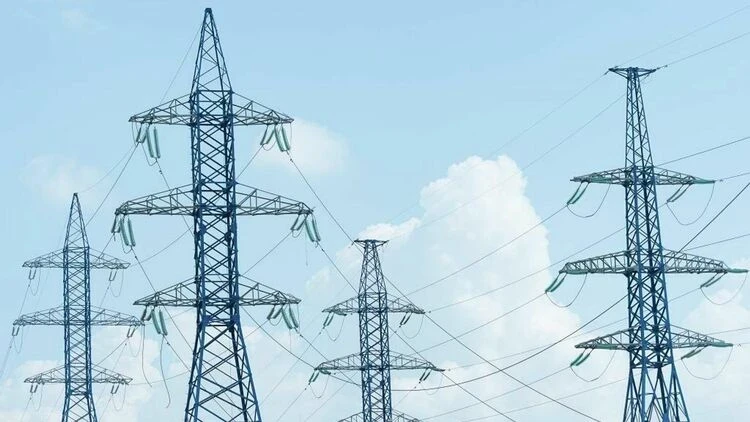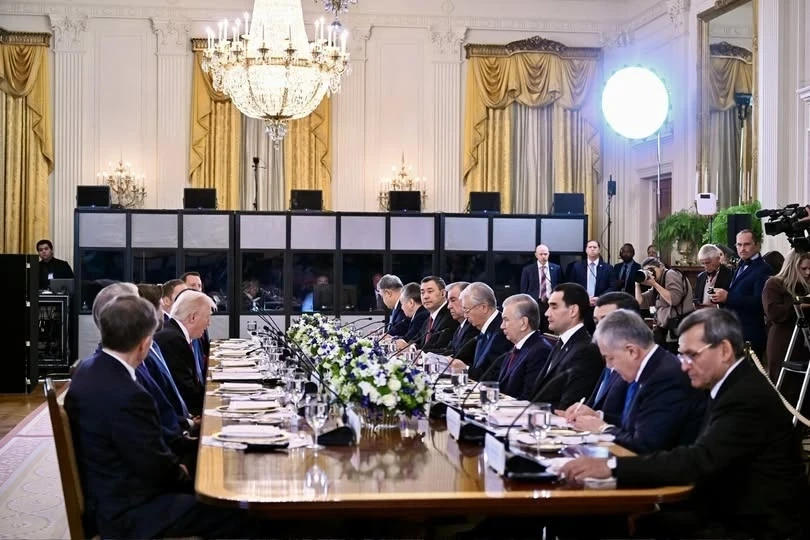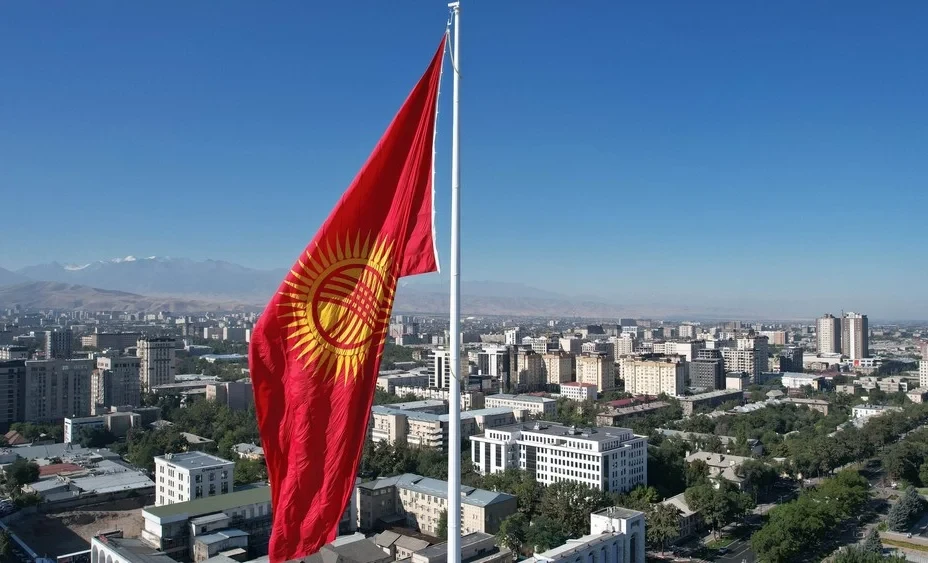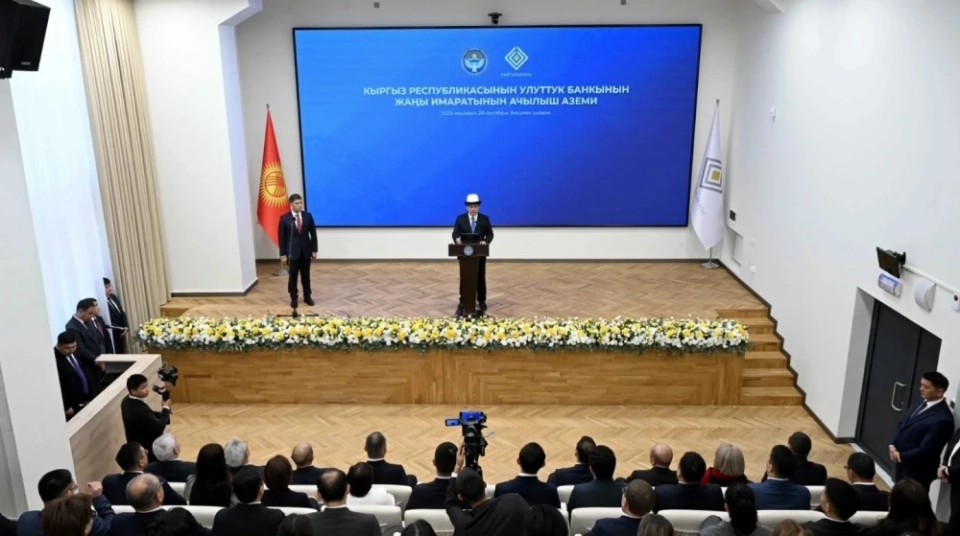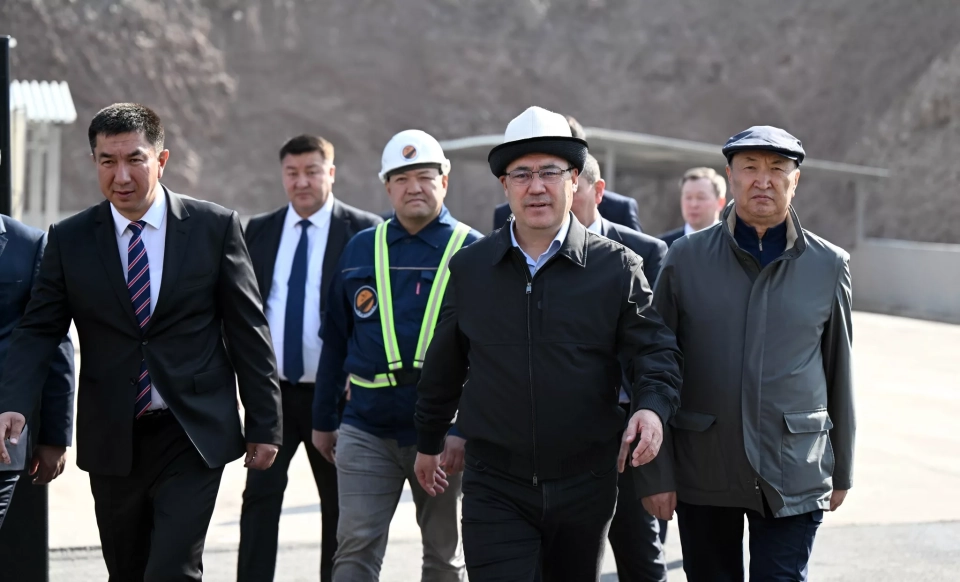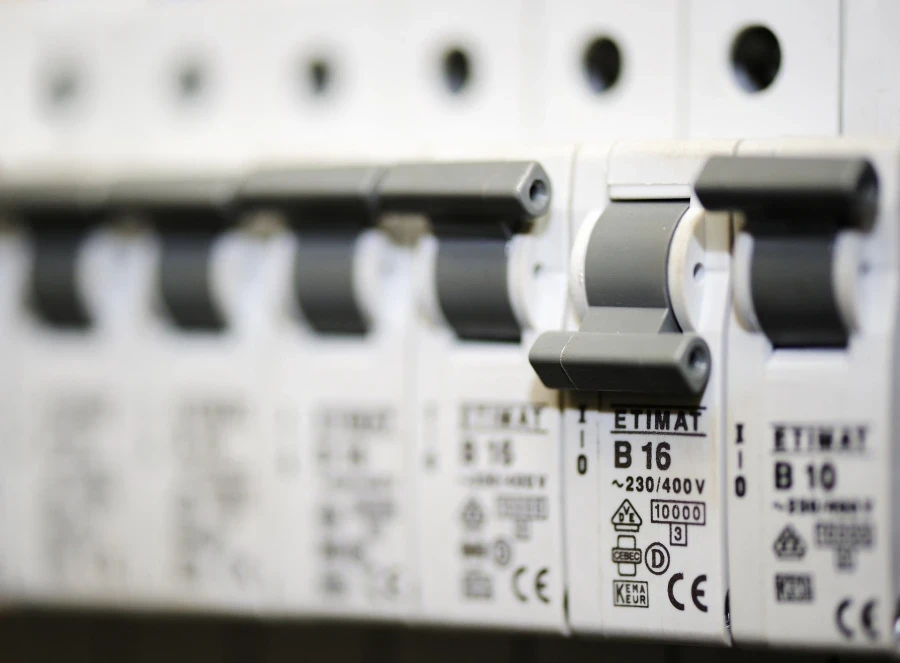- The energy sector and tariffs.
- The national debt (external and internal).
- The issuance of driver's licenses and road safety.
Energy
Recently, the Open Joint Stock Company "National Electric Network of Kyrgyzstan" proposed that the population use electricity without restrictions during the autumn-winter period, maintaining previous consumption levels. However, this proposal was not agreed upon with the Ministry.This initiative caused widespread public resonance.
Indeed, it was so: the unlimited tariff was introduced three years ago to partially cover the difference between the price of imported electricity and the cost at which it was sold to the population.
However, under current conditions, the volume of water in the reservoirs is 2 billion cubic meters less than last year. Therefore, the connection to the unlimited tariff has been temporarily suspended.
When I saw this message in the media, I immediately contacted the minister and expressed my dissatisfaction, instructing to stop such actions and ensure equal access to electricity for citizens.
As a result, the general director of NESK and his deputy for commercial issues received a reprimand, and the head of the electricity sales department, I. A. Orozbaev, was dismissed.
I would like to take this opportunity to shed more light on the situation in the energy sector. People need to know the truth.
Until 2020, the debt of the energy sector amounted to 137 billion soms, and the system was on the brink of collapse.
The situation particularly worsened in the joint-stock companies "Vostoelektro" and "Jalalabadenergo": their internal and external debts grew day by day, and salaries were paid to employees from borrowed funds. In fact, these companies were on the verge of bankruptcy.
Energy workers remember how things were. The equipment was outdated, not updated since the 1960s. New hydropower plants were virtually not built. Only in 2009 was the first generating unit of the Kambar-Ata HPP-2 put into operation, and since then, no significant facilities have appeared.
Since our independence, we have faced electricity shortages every winter. To cover the deficit, we had to purchase electricity from abroad, and sometimes one kilowatt-hour cost us 5 soms.
I learned about this situation when I came to power and began to implement reforms in the energy sector, fighting corruption and abuses. It is difficult to say how much of those 5 soms ended up in the pockets of individuals. The countries that sold us electricity will not tell us about this either. Therefore, it is currently difficult to establish the true scale of the problem. Energy purchased at 5 soms was sold to the population at a price of 0.77 tyiyn per kilowatt-hour, and the difference of 4 soms 23 tyiyn weighed heavily on the energy system and accumulated as debt.
Thus, starting from 2020, thanks to the reforms carried out, the elimination of corrupt schemes, and a sharp reduction in energy losses, we managed to reduce the total debt from 137 billion to 25 billion soms.
With God's help, next year we will completely rid ourselves of the remaining debt, and by 2027, our energy system will be able to start generating profit for the first time in history. This is a significant achievement for our state and our independence.
If I thought that "the main thing is that my presidential term passes," I could have avoided building hydropower plants, not implementing reforms, and simply importing electricity at 5 soms and selling it to the population at 1 som. Even a fifth-grade student could do that. But I chose a different path. If I had continued the previous practice, the country's energy system could indeed have been on the brink of collapse.
Today, we purchase electricity for about 3 soms per kilowatt-hour (this is the cost price), and we sell it to the population for 1 som 37 tyiyn. The difference is currently covered by the ministry.
Nevertheless, thanks to the reforms being implemented and the measures being taken, we hope that next year the ministry will fully pay off its debt of 25 billion soms, and by 2027 it will achieve profitability.
At the moment, the water level in the Toktogul reservoir is 2 billion cubic meters lower than last year. Therefore, to maintain the water level and eliminate the electricity deficit, we are forced to import in large volumes.
Today we urge citizens to conserve energy precisely to reduce the volume of imports. Remember: the more wastefully we use electricity, the more funds go abroad. In this regard, state institutions have already been instructed to turn off lighting and electrical appliances in buildings after 6:00 PM.
There is enough electricity in the world — it can be imported without restrictions. But every extra kilowatt-hour incurs additional costs for the budget. And the budget is the people's money, your money. Do not forget about this. Frankly speaking, many private individuals also do not conserve energy. Entering some homes, one can see that the lights are on in all rooms even during the day. Walking down the street, one can see that some outdoor lamps are on even in daylight.
Therefore, I appeal to all citizens: use electricity economically. Every 100-watt bulb that operates continuously for an hour "takes" about 270 liters of water from the Toktogul reservoir. Imagine — 270 liters for one bulb! So do not forget to turn off the lights at night.
I lived in Europe for four years and can say: there, they do not leave the lights on for even a minute longer — they turn them off immediately. Because electricity is expensive there. For example, in Germany, in winter, one kilowatt-hour costs about 50 euro cents, which is approximately equal to 50 soms.
In Central Asian countries, such as Uzbekistan, tariffs depend on the volume of consumption: with an average consumption of about 1,000 kWh per month, they pay about 500 soms, which is about 3 soms 60 tyiyn. The more you use, the higher the tariff. In Kazakhstan, in Almaty, the tariff ranges from 30 to 50 tenge, that is, from 5 to 8 soms. And here in Kyrgyzstan, it is only 1 som 37 tyiyn. Some may say: "But their salaries are higher." But if you compare considering all expenses — food, healthcare, taxes, housing and car insurance — the standard of living turns out to be approximately comparable. And at the same time, our electricity remains the cheapest. We have been actively building hydropower plants for the third consecutive year, as well as facilities powered by solar and wind energy. In the near future, the first solar power plant will be launched in our country. Nevertheless, despite all these achievements, we still lack energy in winter.
Considering the annual construction of hundreds of factories and plants, thousands of schools and kindergartens, millions of square meters of housing, all this requires a significant amount of energy, and we continue to face a deficit that we cannot keep up with.
It is worth noting the hydropower plants that were commissioned earlier.
Hydropower plants commissioned in 2024:
- Bala-Saruu HPP – 25 MW (Talas region);
- Ysyk-Ata HPP 1 – 2 MW (Chui region);
- Kok-Art HPP – 6.7 MW (Jalal-Abad region);
- Kainama HPP – 9.6 MW (Jalal-Abad region);
- Isfayram-1 HPP – 2 MW (Batken region);
- Kurak-Tektir-1 HPP – 0.6 MW (Osh region);
- Arashan HPP – 2.4 MW (Issyk-Kul region);
- Beles HPP – 0.54 MW (Batken region).
- Total installed capacity amounted to 48.84 MW.
- Koysuu HPP – 9 MW (Issyk-Kul region);
- Ysyk-Ata HPP 2 – 4 MW (Chui region);
- Aksy HPP – 4.75 MW (Jalal-Abad region);
- Boz-Uchuk HPP – 5.54 MW (Issyk-Kul region);
- Kara-Kul HPP – 18 MW (Jalal-Abad region).
- Total installed capacity - 41.29 MW.
At the Uch-Kurgan HPP, 9 MW have been added as part of the reconstruction, and after the project is fully completed, an additional 36 MW will be obtained. At the Kambar-Ata HPP-2, a project is underway to put the second unit with a capacity of 120 MW into operation. The At-Bash HPP has been updated, adding 11.44 MW. Reconstruction work is ongoing at the Lebedinov HPP. Preparatory and design work is also being carried out for the Papanskaya, Lower-Tar and Bystrovskaya HPPs. Construction of small HPPs in 2025-2030 (full original text).
In 2025, the following stations are being built in Jalal-Abad, Batken, Osh, Naryn, and Chui regions: "Kojo-Kayyr" ("Bazarbay-Ata-3"), "Kurak-Tektir-2", "Kainama-2", "Sary-Tash", "Shamshy", "Sokuluk-3", "Tuyuk", "Kurtka" and "Ken-Tor-1".
Their total capacity will be 29.53 MW.
In 2026, the construction of 25 small HPPs is planned, including:
- Orto-Tokoy HPP (21 MW);
- Kulanak HPP (100 MW);
- Turgent HPP (26 MW);
- Mayly-Suu HPP (26 MW);
- Ak-Suu HPP-3 (17.66 MW) and others.
In 2027, another 14 new HPPs will be commissioned, including:
- Papan HPP (27 MW);
- Jeruyskaya HPP (28 MW);
- Chandalash HPP (30 MW).
- Total capacity will be 172.88 MW.
Promising projects for the coming years:
- Chon-Kemin HPP (26 MW, Chui region);
- Chok-Tal HPP (3.7 MW, Issyk-Kul region).
If we did not build schools, kindergartens, residential buildings, factories, and plants, the deficit accumulated over many years would have long been covered by the commissioned HPPs, and we would live peacefully.
But we are not sitting idly by. We are actively working to overcome difficulties.
The reason I assert that in two and a half years we will cover the winter electricity deficit is that about a hundred small and medium hydropower plants are being built across the country. All of them will be completed.
In addition, the construction of a thermal power plant with a capacity of 1,200 MW has begun in Kara-Keche, with an annual production volume of up to 7 billion kWh.
It is expected to be commissioned in two and a half years. After the construction is completed, the electricity deficit in winter will be completely eliminated.
If we simply wait for the completion of Kambar-Ata HPP-1, it will take another 7-8 years. When "Kambar-Ata" is fully operational, Kyrgyzstan will become an electricity-exporting country. Continuous and targeted work is being done in this direction.
With the implementation of the aforementioned projects, the electricity deficit will be gradually eliminated, and Kyrgyzstan will become an energy-secure, self-sufficient, and sustainable state.
Therefore, I ask you to understand the current temporary difficulties and show patience, assisting in the restoration of our energy system. Use electricity economically and rationally — this is how you will contribute.
External and Internal Debt
Now I will move on to the issue of external and internal debt accumulated over the past three decades. Fortunately, the time for repaying all these debts and solving other complex tasks coincided with my presidential term.- 2020 - 31 billion soms paid;
- 2021 - 30 billion soms;
- 2022 - 34 billion soms;
- 2023 - 53 billion soms;
- 2024 - 60 billion soms;
- 2025 - 79 billion soms.
- external debt - 170.5 billion soms (1.9 billion USD);
- internal debt - 114.9 billion soms (1.4 billion USD).
This is becoming possible due to high rates of economic growth, which are expected to continue for the next 15-20 years. As large-scale projects are implemented and new investments come in, the country's GDP will grow even faster.
The level of sustainability of the national debt is determined by its ratio to GDP. To date, this figure is 42%, whereas it previously reached 68-84%. Therefore, there is no cause for concern. All attracted funds are directed exclusively towards economic development, which, in turn, will lead to further GDP growth.
As for current borrowings, they are taken for specific, targeted projects. When the time comes for their repayment, they will not be paid from the budget, as each project will pay for itself.
An example is the Kambar-Ata HPP. We are attracting 1.5 billion dollars for 50 years at zero interest. The grace period is 10 years. Construction will take 7-8 years, after which the station will start operating immediately. The revenues from its operations will allow us to repay the loan not in 50, but in about 15 years.
Another example is the China-Kyrgyzstan-Uzbekistan railway. This project is not an external debt. It is being implemented as a commercial project: the three countries are jointly constructing the road, commissioning it, and after 35 years, the two sides will exit the project, and the road will fully transition to the ownership of Kyrgyzstan.
If we imagine that all countries of the world are united in a single economic ocean, then China itself is a separate economic ocean. And now we are building a railway that will connect these two oceans. This railway will pass through the territory of Kyrgyzstan. In the future, we will become a transit country and be able to influence global economic policy. Therefore, we must not succumb to provocations and must bring this project to completion as soon as possible.
It should be noted that almost 90 percent of such large projects are not directly related to the state budget. Of course, there are some loans taken for social projects and road construction, but they will not have a significant impact on the budget in the future. Therefore, I ask you not to pay attention to those who, by speculating on the figures of external debt, try to sow panic and incite the people, presenting the situation as a tragedy.
Let it be as they say. Everything is used for its intended purpose and directed towards targeted projects. The main thing is that in the future this will not affect the budget.
Driver's Licenses and Road Safety
Now I will move on to the issue of driver's licenses. After the collapse of the Soviet Union, exams were not given much importance; licenses were obtained almost randomly. Today, 90 percent of those who have a license bought it. This is a bitter truth. I can prove this 100 percent.If you stop most drivers on the street and ask them about traffic rules or the characteristics of their cars, they will not be able to answer or show. If you ask what kind of engine they have, many will point to the radiator and get confused.
Therefore, let’s think about the future generation now. It is necessary to bring this area into order.
Due to ignorance of the rules, many traffic accidents occur today. Below is the statistics:
- from 2014 to 2020, the number of fatalities in traffic accidents was 6,159;
- from 2021 to the present - 3,818.
We are losing not only our citizens but also have to support those who were injured and became disabled. This causes serious damage to our state.
From now on, purchasing a driver's license will be impossible. Those who previously bought a license and are caught violating the rules will have to take exams. There is nothing wrong with this: those who do not know the rules or have forgotten them will learn them again. All traffic accidents occur due to non-compliance with the rules, which leads to human casualties.
I asked an employee who sold licenses: "You sold 100 licenses. Can you guarantee that one of those 100 people won't hit and kill one of your loved ones tomorrow?"
He replied: "We have had such cases."
One of those who bought a license ran over the sister and brother of the employee who sold the license. Therefore, the license seller should think: what if this person runs over my son or my grandson tomorrow? We will do everything possible to ensure that licenses are issued only to those who have successfully completed training.
In European countries, some study for 2-3 years and struggle to obtain a license. And that is why the number of traffic accidents in Europe is almost zero. Why can't we achieve the same? Even if we start taking strict measures now, it may take 50 years. In 30 years, those who bought licenses will age and stop driving, and only those who obtained a license after full training will remain. Only then can we eliminate traffic accidents. Therefore, citizens must unconditionally support our measures.
In all schools across the country, an additional course on traffic rules will be introduced. It is being developed by specialists from the Road Safety Department of the Ministry of Internal Affairs and the Ministry of Education, and detailed information will be provided to the public by the end of November.
Why 14 months? First, 11th and 12th-grade students begin their studies in September, and the assimilation of information depends on age characteristics — a year is needed. Practical classes will be conducted considering rain, winter season, and weather conditions.
It is expected that there will be practical lessons:
- how to drive on slippery roads;
- what to pay attention to in the dark;
- first actions in case of a car breakdown, etc.
The question arises: is it necessary to train all schoolchildren, can't we just train those who intend to obtain a driver's license? Whether we want it or not, we are all participants in road traffic: some are driving, some are pedestrians. Therefore, knowledge of traffic rules will be useful for the youth.
Those who do not intend to drive will simply not take the final exams. The technical base is sufficient. Driving schools will be in all regions, practical hours will take place there, and theoretical classes will be in schools. Adults who have finished school or university will study in driving schools. For them, the training period can be intensive and shorter.
There will be no more corruption. Forget about being able to buy a license for money. Now driver's licenses will be obtained only through knowledge, effort, and diligence. Everyone must achieve this through their knowledge and tireless efforts.
Conclusion of the Address
There are groups with ill intentions that exaggerate the mentioned problems, inflate them, and incite people, hoping for possible events during the elections.Who are these people? Among them are those who were previously detained for major corruption cases and, by court decision, transferred significant sums or assets to the state budget; those whose shadow schemes we dismantled and who lost income; those who are leaving their posts, angrily seeking revenge for their benefit. In other words, these are people who are offended for personal gain.
Recently, we took one of these individuals with Kamchybek Kydyrshaevich and told him directly: "Almazbek Atambayev did not call you a 'jackal' and 'vulture' for nothing."
We said: live peacefully, raise your grandchildren, and stay at home.
He still has not corrected himself. These people, through bloggers, are again raising old questions about the houses built by fraudsters like "KG Group," "Ikhsan," and trying to present them as low-quality.
We will gradually complete these houses: legalize them, connect them to electricity. It will take time to resolve the remaining problematic houses. Everything will be completed.
So do not hope for chaos. There will be no coups. First, we will not give a reason for a coup. Secondly, the previous weak state no longer exists. Now the state is strong. Thirdly, the people already clearly understand whom to support and who should be in power.
From now on, coups will only be in your dreams. Looting, robbery, greedy striving for profit, and attempts to seize positions and get rich after a coup — let all this remain only in your dreams.

